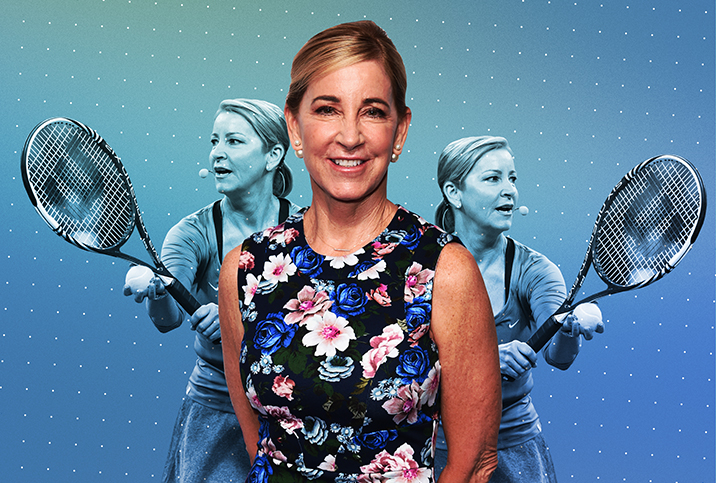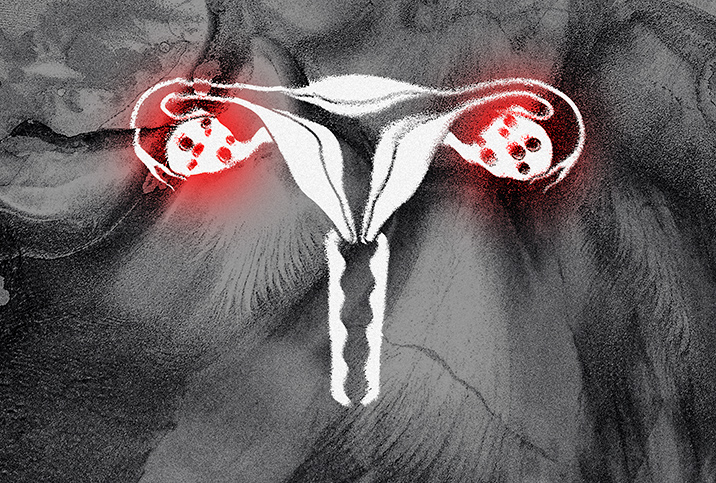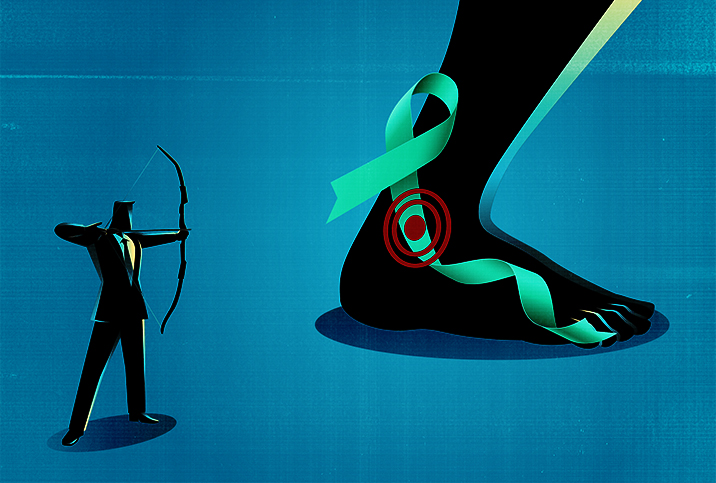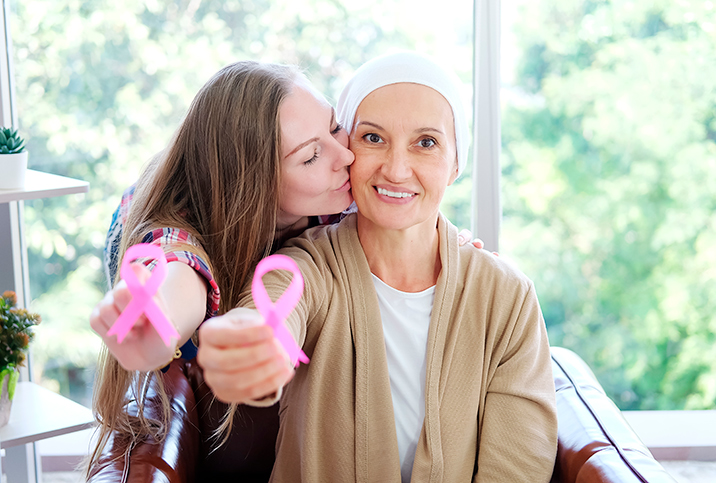Chris Evert Discusses Ovarian Cancer Diagnosis

Chris Evert, ESPN analyst and former world number-one tennis player, announced on January 14, 2022, she has been diagnosed with stage 1C ovarian cancer. The cancer was discovered during a preventive hysterectomy.
Fortunately, the cancer was caught early, and Evert began treatment last week. She will undergo six rounds of chemotherapy over the next few months.
"I've lived a very charmed life. Now I have some challenges ahead of me. But, I have comfort in knowing the chemotherapy is to ensure that cancer does not come back," Evert told her friend and coworker Chris McKendry in an interview with ESPN.
Like many people with ovarian cancer, Evert said she experienced no symptoms before her diagnosis. "Seventy to 80 percent of ovarian cancer is diagnosed at stage 3 or 4," explained Joel Cardenas, M.D., Evert's surgeon at Cleveland Clinic Florida. "Three months or so from now, she'd be stage 3 or 4."
Evert is all too familiar with the ravages of ovarian cancer, a disease that killed her younger sister, Jeanne Evert Dubin, in February 2020.
'I have comfort in knowing the chemotherapy is to ensure that cancer does not come back.'
In October 2017, the sisters were running through the Singapore airport to catch their flight to the Women's Tennis Association (WTA) Finals when Evert realized Dubin, also a former professional tennis player, was out of breath and couldn't keep up.
"True to Jeanne's personality and like many other women, Jeanne was busy taking care of everyone else," Evert said.
Dubin promised Evert she'd see a doctor as soon as they returned home, but by then it was too late. She was diagnosed with late-stage ovarian cancer. Watching her undergo treatment was "devastating and traumatizing," Evert said.
"When I go into chemo, she is my inspiration," Evert added. "I'll be thinking of her. And she'll get me through it."
While Dubin was in treatment, she was tested for the BRCA1 gene mutation that is associated with a higher risk of certain cancers, including ovarian and breast. At the time, Dubin's results came back negative for the harmful BRCA1 variant, and family members were not encouraged to pursue genetic testing, Evert told ESPN.
However, with more research and refined testing in the years following, scientists have determined that the gene variant Dubin had was, in fact, pathogenic. In October 2021, Evert's family received a call notifying them of this updated information.
Evert immediately underwent genetic testing that revealed she has the same gene variant as her sister. After discussing her options with her doctor, they decided on the preventive hysterectomy.
'I just couldn't believe it. I had been working out, doing CrossFit, playing tennis. I didn't feel anything different.'
"We thought we were being proactive," Evert recalled. But then her doctor "called and said we need to go back in within the next 10 days for lymph nodes and other tissue samples."
The surgery had revealed malignant cells and a tumor growing in her left fallopian tube.
On December 13, the doctors operated again. And then her wait began.
"The longest three days of my life. Stage 1 or stage 3," Evert said. "If I'm clear of cancer, I'm a different statistic. I was in a daze. I just couldn't believe it. I had been working out, doing CrossFit, playing tennis. I didn't feel anything different."
On December 15, she received the good news: stage 1. Her lymph nodes were negative, indicating the cancer had not spread. Following Evert's chemotherapy, there is more than a 90 percent chance her cancer will be gone for good.
When discussing her decision to share openly about her diagnosis, Evert said, "We need to have these conversations. Ovarian cancer is a very deadly disease. Any information is power."
And her advice to others? "Be your own advocate. Know your family's history. Have total awareness of your body—follow your gut and be aware of changes."


















